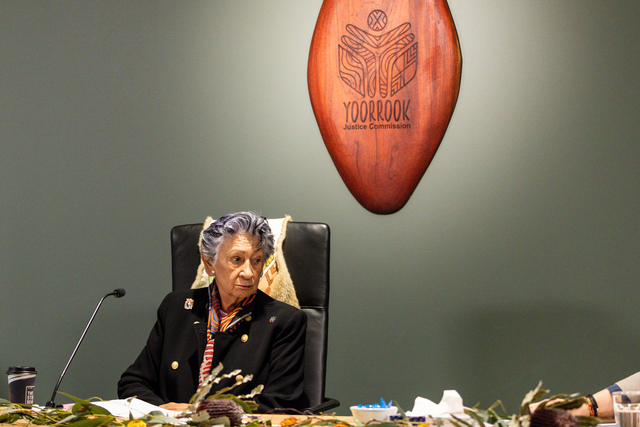
By Dongyun Kwon
Healesville-grown Indigenous man revealed his thoughts after the Victorian Government tabled its response to the Yoorrook Justice Commission’s second interim report on 3 April.
Following careful consideration, the Government has accepted four of the recommendations in full, 24 in principle, another 15 have remained under consideration and three have been rejected.
Treaty and First Peoples minister Natalie Hutchins said the Victorian Government thanks First Peoples who participated in the inquiry and appeared before the Commission for their ongoing strength and resilience.
“The Yoorrook Justice Commission’s work is globally groundbreaking. Victoria’s truth-telling process is a historic opportunity to hear the stories of our past that have been buried,” she said.
“These are stories that all Victorians need to hear. Treaty and Truth, led by Aboriginal people, is the best way to deliver improved outcomes and close the gap.”
“Every Yoorrook Justice Commission inquiry allows the Victorian Government to develop a deeper understanding of the discrimination that has been built into state government policies and approaches.”
Swinburne University of Technology Indigenous Studies associate professor Andrew Peters said he’s disappointed to have only four recommendations fully accepted as the vast majority of these recommendations are very reasonable and achievable.
“We can hope that those under consideration will be accepted and involved in further discussion, but when dealing with our parliamentary system, nothing is easy,” he said.
“I understand that the Government has pressures from all angles, but this is a people-related crisis that has been happening for decades, and nothing previously has addressed it adequately.
“It’s been 33 years since the Royal Commission on Aboriginal Deaths in Custody, so it’s long past time that effective action is taken, and that means changing attitudes of our decision-makers and refocusing some priorities.”
Assoc Prof Peters is a Yarra Yarra and Yorta Yorta man who grew up in Healesville and has family connections to a number of other mobs from around Victoria,
Yarra Yarra is a name that emerged from Coranderrk Aboriginal Reserve, near Healesville, where they have a very strong family connection.
Assoc prof Peters said it’s a really difficult process as Indigenous People are essentially challenging a political institution that’s been in place, and relatively unchanged, for 150 years.
“However, that doesn’t mean it shouldn’t be challenged, or shouldn’t be changed,” he said.
“History shows that we need to vastly improve our connection to Indigenous peoples, culture and history, and as a first step, we need the government to hear Aboriginal voices within these discussions.
“In the area of criminal justice and child protection, these voices are absolutely critical to addressing a deep-seated ongoing crisis.”
The Healesville-grown man said there are parts of the Yarra Valley that have always been inclusive of Aboriginal People and other parts not so much.
“It’s clearly a better situation now for Aboriginal people than it was 30 years ago, but there’s still a long way to go,” he said.
“You’ll be able to find stories of racism and exclusion still exist in parts of our society, and the Yarra Valley is no different.
“There are a number of positive things happening, however, through the council, our schools, and Aboriginal organisations. I always found, through playing sport in the Valley, that I personally didn’t feel excluded from much, and people seemed to accept and respect me as an Aboriginal person.”
The Indigenous studies educator said education is one of the keys to making the region more inclusive.
“Too many non-Aboriginal Australians are disconnected from Aboriginal Culture and History, and in the Yarra Valley in particular, we should all be really proud of our connections,” Dr Peters said.
“Learning about and with Aboriginal people is a great way to build pride in ourselves and connect with each other and our history.
“We are certainly moving in a positive direction, but there’s always more that can be done, especially as the towns in the Valley grow. Healesville is very different now from the town I grew up in.
“My mum, the late Aunty Dot, always used to say that we should all live our lives with respect, caring and sharing. If we all did this, I honestly believe we’d have a much more inclusive and happy society.”






